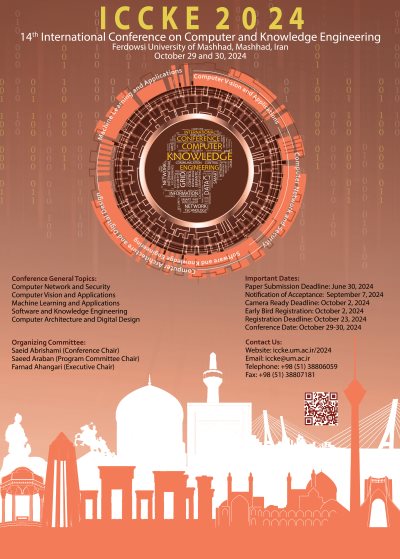0% Complete

Authors :
Keywords :
Abstract :
List of archived papers
Reza Damirchi - Amineh Amini
Reza Saeedinia - S.Omid Fatemi - Daniele Lorenzi - Farzad Tashtarian - Christian Timmerer
Masood Ghasemi - Mahmood Fathy - Mohammad Shahverdy
Javad Dogani - Farshad Khunjush
Mohammad Naisipour - Iraj Saeedpanah - Arash Adib - Mohammad Hossein Neisi Pour
Amir Meydani - Ali Ramezani - Alireza Meidani
Houmaan Chamani - Zhivar Sourati Hassanzadeh - Behnam Bahrak
Mohammad Dehghani - Behrouz Bokharaeian - Zahra Yazdanparast
Samad Azimi Abriz - Majid Meghdadi
Aref Farhadipour - Pouya Taghipour



